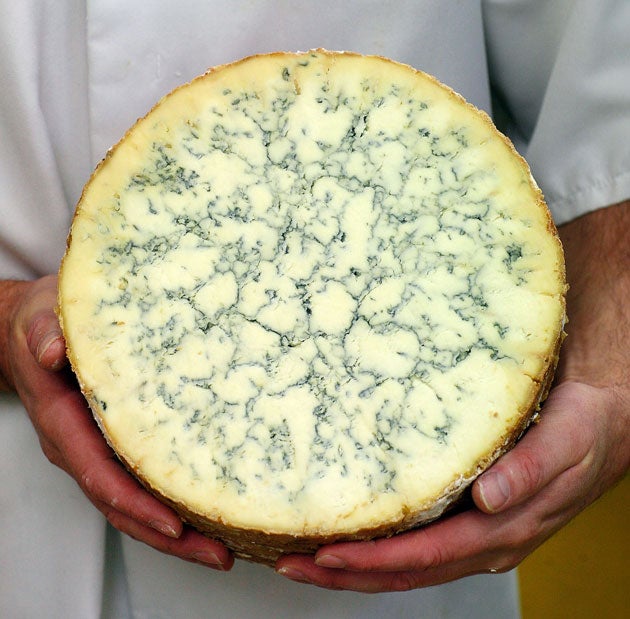Why 2009 is the year of the Stilton

Around three years ago the Food Standards Agency made two fairly big demands on the British cheese industry. First, it had to markedly decrease salt usage and provide a healthier offering to consumers. Second, cheese could no longer be seen as or indeed marketed as a healthy product to children. Both edicts applied to the whole industry and so promoted as healthy or not, all British cheese was affected.
Salt is important to the cheese making process and so artisan producers, those creators of speciality cheese, faced a problem. To decrease salt whilst maintaining flavour and quality was surely an impossible task. Not necessarily, says Nigel White of the Stilton Cheese Maker's Association. In fact recent changes made to the age old process have been positively uplifting. Producers are now creating cheese with a more even salt distribution which uses slightly less of it. The result is an improvement in quality.
White explains: "Stilton carries a Protected Destination of Origin status which means only six dairies in the world are entitled to produce it. Between them the businesses have picked up an impressive number of Supreme Champion titles at the nation’s prestigious cheese awards this year and the outlook for Stilton is now very healthy indeed."
Collectively the six dairies are responsible for producing around 10,000 tonnes of Blue and White Stilton a year and while the amount of salt used in them is slightly reduced, their flavour and world-wide reputation remain undiminished.
"By improving the distribution of salt throughout each cheese, makers have been able to reduce slightly the amount used and this has had a favourable impact on the consistency of quality," White says.
Recent British Cheese Award Supreme Champion Quenby Hall started making cheese in 1627. After a 150 year hiatus, they resurrected operations in 2005. The accolade, says General Manager Brian Ireland, is the result of a good few years of quality control.
"Quenby Hall is the smallest of the six Stilton- producing dairies. We have a wonderful staff and an excellent milk supply but we still focus on our development. We can always do better."
So despite the challenges faced by the Stilton six, the king of cheeses has retained its crown. With over 1,000 tonnes being exported and foreign distributors beginning to respect and understand its handling requirements, Stilton’s overseas prospects seem positive, too.
There is however, a little industry frustration around its UK reputation. Its high days and holidays image, they say, needs addressing. It is misunderstood and just like a puppy, Stilton isn’t just for Christmas. A good Stilton is of course perfect with walnuts, celery, pickles and crackers. But as an ingredient, it has so much more to offer.
As you would expect White wants us to experiment with it and so we should. Stilton is to be celebrated as part of our wider food heritage, and the recent medal goldrush is a true barometer of its quality.
It crumbles, melts and peps up the dullest of dishes. Hell yeah, Stilton even freezes.
So don't be frightened to cook with it and or use it as a final flourish. Stilton-stuffed mushrooms and blue cheese burgers for example, need no recipe explanation and they are simple ideas for this most complex of cheeses.
Helen Tudor is Publishing Director at Great British Food, www.greatbritishfoodmagazine.com
Join our commenting forum
Join thought-provoking conversations, follow other Independent readers and see their replies
Comments